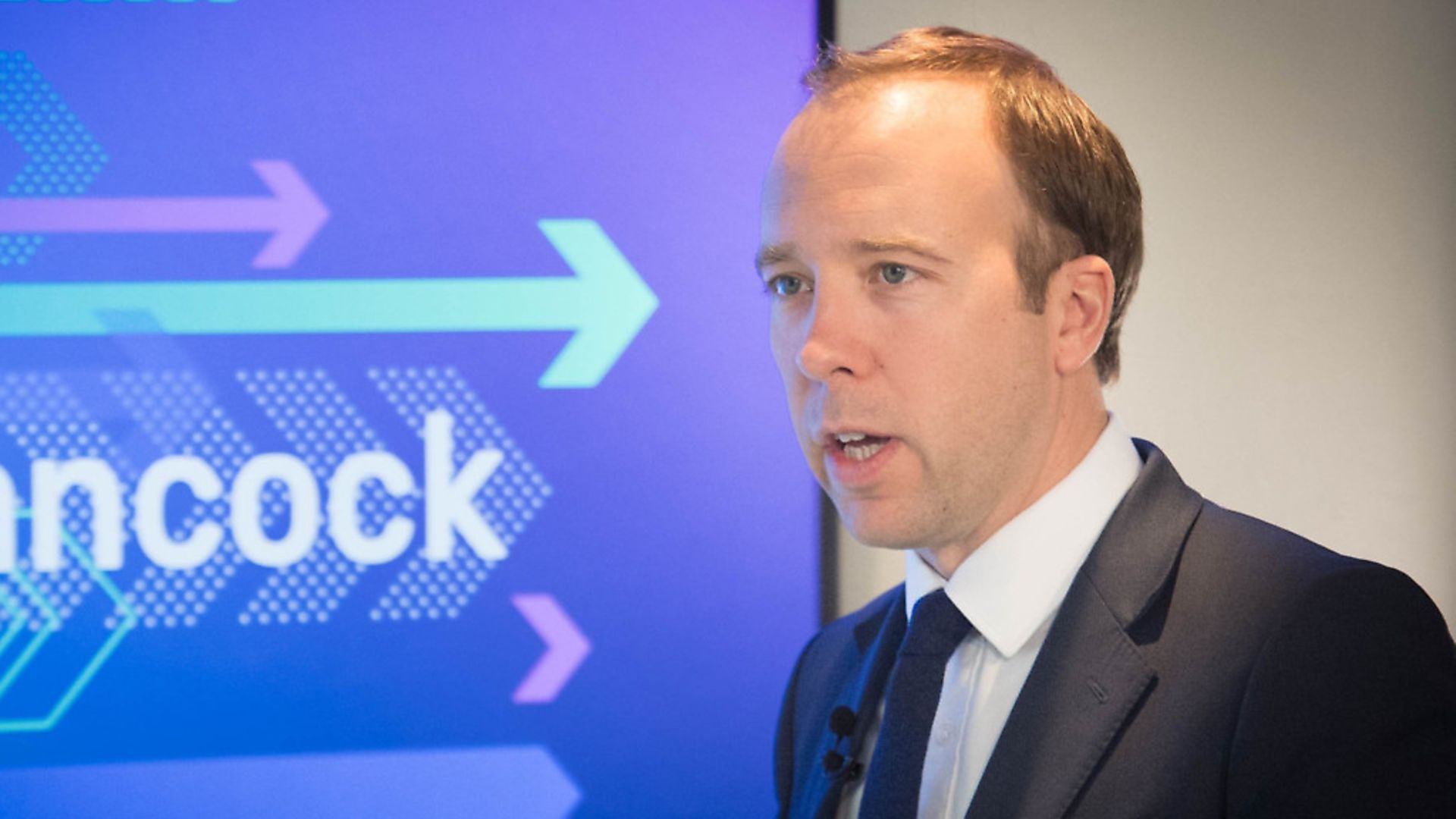
Health secretary Matt Hancock has admitted the ‘facts have changed’ on Brexit in the last two months since he claimed that a no-deal Brexit was ‘not viable’.
Just two months ago Hancock was in the Conservative leadership race saying saying that the choice was between leaving on a deal or not leaving at all.
Back then he told the Times: “There is only one route through this and that is to leave with a deal by October 31. This leadership debate needs to be based in the reality of the situation we face.”
He added: “No deal is not a policy option available to the next prime minister, whether they like it or not.”
But now Hancock has taken a sharp u-turn and now claims that the facts on Brexit – but despite this he still opposes giving the people a final say.
He told Radio 4 Today: “My view on that has changed and has changed because there were votes in parliament just before we rose in the summer that I thought would stop a no deal Brexit and actually were defeated.
“There was a vote in particular in the middle of the leadership contest where parliament was asked if it wanted to stop no-deal Brexit.
“I thought that would go through and in fact, the government won by 11.
“And that has actually changed my mind because the parliamentary arithmetic did not play out as I anticipated.”
He continued: “My view has always been that we’ve got to deliver on the result of the referendum and I think that the best way to do that is with a deal.
“And the government as a whole thinks that of course that is best done with a deal.
“But we need to deliver on it on the 31st of October. I now don’t think no-deal can be blocked by parliament.
“I thought that it could and the votes went differently to what I anticipated.”
“And when the facts change, sometimes even as a politician you have to change your mind.”
Asked about the prospect of a general election this year, Hancock said that he agrees “with Brenda” in reference to the lady from Bristol who had enough of public polls back in 2017.
He said: “I don’t want one. I don’t think we need one.”
In April the health secretary said he was “very, very strongly against” a second referendum.
He said: “I have argued many, many times that it would be divisive. It wouldn’t be decisive. It doesn’t help us leave the European Union before the European elections.
“So I am very, very strongly against it.”
Warning: Illegal string offset 'link_id' in /mnt/storage/stage/www/wp-includes/bookmark.php on line 357
Notice: Trying to get property 'link_id' of non-object in /mnt/storage/stage/www/wp-includes/bookmark.php on line 37






